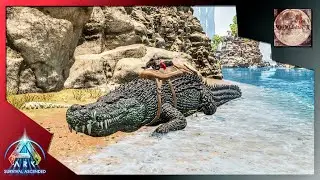Sunday Drive Leadership
There I was, nestled in the backseat of an old black Austin Wolseley—our family’s pride and joy. The leather seats had a unique smell, aged and comforting. My sister and brother sat on either side of me, while Mum and Dad occupied the front. On special Sundays when Dad wasn't preaching or we weren't visiting Grandma, we embarked on a Sunday drive.
One memorable Sunday, we ventured to Redhill in Kent. This was years before the M25 motorway cut through that serene spot. We parked our Wolseley atop the hill, unpacked our picnic blanket, and delved into a basket of treats. My siblings and I rolled down the hill, laughing and tumbling until our legs were too exhausted to carry us back up. It was a sunny autumn day, and life felt utterly perfect. As kids, we never knew where we’d end up on those drives. Every journey was a new adventure, a fresh corner of England waiting to be discovered.
But as I grew older, those Sunday drives became less frequent, and by the time I turned eleven, they stopped altogether. I missed the spontaneity, the carefreeness of those days, the feeling of drifting and discovering.
Thanks for reading Difference Makers! Subscribe for free to receive new posts and support my work.
Now, I often see people living a “Sunday Drive” kind of life. They drift along, letting the currents of circumstance take them wherever, rarely taking charge of their destinations. While some days bring joy, many are filled with dissatisfaction. They believe someone else should steer their course, hence the endless complaints about their situation.
Much like a neglected plant that withers without nourishment, our lives require continuous growth and nurturing. Weeds and pests will always threaten, but only with effort can we keep them at bay. Leadership, I've discovered, is no different. Our ability and character must be fed, watered, and meticulously tended if we are to flourish.
But growth can be intimidating. Fear of standing out too much—of becoming the proverbial tall poppy that gets cut down—might tempt us to keep our heads down. However, avoiding growth stunts our potential.
Imagine planning a journey from Singapore to Bintan. (Now, if you don’t know where Singapore is, let alone our next door neighbour to the south, just know it’s not far but it is another country and separated by water.) You wouldn't just head to the coast and hop on the first ferry south. You’d research, plan, and prepare—each step deliberate and purposeful. Similarly, a leadership journey requires setting clear goals, breaking them into manageable steps, and tracking progress.
So, think about it: where do you want your leadership skills and character to be one month from now? Plan the journey, set your milestones, and take the first step. Drifting may bring you to pleasant places now and then, but intentionality ensures you arrive where you truly want to be.
Author's Commentary: Choosing Intentional Growth
When I penned "From Backseat to Driver’s Seat: Intentional Leadership Growth," my aim was to weave a narrative that resonates with those who find themselves passively drifting through life. The imagery of a lazy Sunday drive, a favourite family pastime, serves as a poignant metaphor for how many people approach their personal and professional journeys. Let me take you behind the scenes of this story and unfold its deeper layers, grounding it in both neuroscience and biblical wisdom.
Nestled in the leather-scented backseat of our family’s old black Austin Wolseley, I found comfort in the predictability of unpredictability. The spontaneity of our Sunday drives brought joy and laughter, as my siblings and I tumbled down the hills of Redhill in Kent. Those carefree days reflect a kind of life many of us desire—a life full of surprises and joy. Yet, as I grew older, the drives ceased, and spontaneity gave way to routine.
Much like my childhood memories, many drift through life, allowing circumstances to dictate their path. While this may sometimes lead to pleasant outcomes, more often, it engenders dissatisfaction and a sense of purposelessness. This passivity starkly contrasts with what I believe we are called to achieve: intentional growth, especially in leadership.
Neuroscience and Intentional Growth
Neuroscience reveals that our brains are incredibly malleable, a concept known as neuroplasticity (https://en.wikipedia.org/wiki/Neuropl...) . This means that with intentional effort, we can rewire our minds to foster growth and leadership. Dr. Carol Dweck (https://fs.blog/carol-dweck-mindset/) 's research on growth mindsets underscores that those who view their abilities as improvable through dedication and hard work tend to achieve more than those with a fixed mindset. The latter believe their talents are static, much like a ship anchored to the ocean floor, unable to navigate the currents.
By choosing to engage in deliberate practice, setting clear goals, and maintaining a learning-oriented mindse...



















